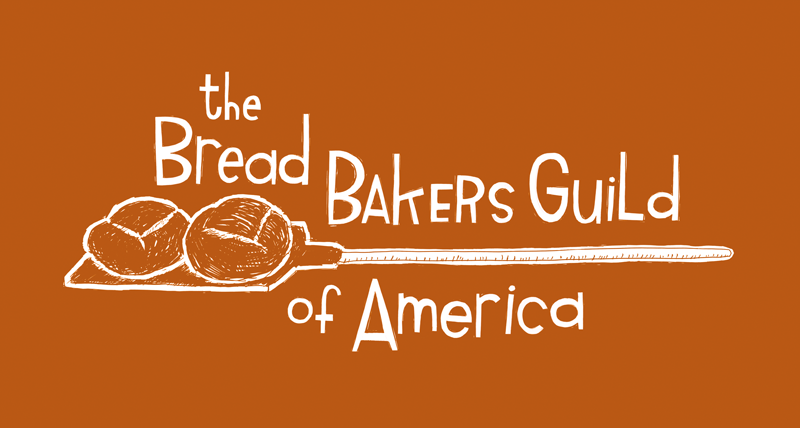Arturo Enciso didn’t set out to become a baker. But everything changed when he moved into a Long Beach rental with a dormant wood-fired oven in the backyard. Curious, Arturo picked up a copy of From the Wood-Fired Oven by Richard Miscovich, a fellow Bread Bakers Guild member, and something clicked. With no formal training, he taught himself to bake, pulling his first loaves from that backyard oven and discovering a lifelong calling in the process.
Today, Arturo is the co-founder of Gusto Bread, a nationally recognized “Californian panadería” known for its slow-fermented sourdoughs, conchas, and deep reverence for heritage grains and ingredients like nixtamalized maize and heirloom beans. For the second year in a row, Gusto Bread is a finalist for the James Beard Award for Outstanding Bakery. He and his partner and co-founder Ana Belén Salatino opened Gusto Bread's storefront bakery in 2020.
As he prepares to teach his upcoming in-person Guild class, Baking in the Milpa, with a Lens Toward Sustainability, Arturo spoke with us about his journey, the cultural roots behind his baking, and how ancestral ingredients are shaping the future of bread.

Your path into baking is so unique. Can you walk us through how it all began?
I’m self-taught. I moved into a property in Long Beach that had a wood-fired oven in the backyard, and I just became really curious about it. I asked the owner if I could borrow some books they had, and from there, it kind of changed the course of my life. I didn’t have any background in baking, but once I started, I was hooked.
How did that evolve into starting Gusto Bread?
It started just as a curiosity, something I did for myself. But pretty quickly, I knew I wanted to make it my career. I got a cottage food license and started baking and selling bread from home. Eventually, we grew, added ovens, hired bakers, saved every penny. Then with a small business loan and my partner Ana on board, we built the bakery and opened it in 2020.

Your partner and co-founder Ana’s design work is such a big part of the Gusto Bread identity. What’s it like working together?
It’s everything. She brings a whole side to the business that I just don’t have, branding, admin, operations. The care and intention she put into the visual side is just as important as the bread itself. That’s how we want people to feel when they walk in--that love and care in every detail.

Your conchas and use of masa harina have become iconic. How did your heritage start to play a bigger role in your baking?
At first, I was focused on sourdough and European styles because that’s what I was learning. But it never felt quite complete. When I started exploring conchas and using ingredients like masa harina, it really lit something up, for me and for my family. My dad, who’s from Mexico City, had this emotional reaction to the breads. That’s when I knew I had to lean into my culture. It made the bread more meaningful.

Tell us about your upcoming Guild class, Baking in the Milpa. What inspired it?
The milpa is an Indigenous Mesoamerican farming system where corn, beans, and squash are grown together, the “three sisters.”
It’s an ancient example of sustainability and interdependence. I’ve been baking with those ingredients, bean purées, squash, heritage corn, and it made me want to share this approach. It’s not just about ingredients, but about rethinking how we source and relate to food.

You’ve also been a semifinalist for a James Beard Award two years in a row now. What does that mean to you?
It’s definitely an honor. I’m grateful for the recognition, but it’s not why we do what we do. We went to the event last year mostly because people in our shop were so proud, it felt like we were representing our whole community. That made it worth it.
Your bakery also faced some challenges recently with flooding and fire season. How did you manage?
Yeah, flooding has been a real issue outside our building. We’ve tried to bring attention to it because it affects access to the shop. And during the fires, we were lucky to be out of the danger zone, but a lot of people displaced by the fires came to Long Beach. We tried to be a comforting space. Bakeries really matter in moments like that.

You’re known for giving your staff time off and promoting rest. That’s rare in this industry.
From day one, Ana and I knew that rest had to be part of the culture. We’ve experienced burnout, and we don’t want that for our team. It’s how we stay present and keep the energy in the bakery alive.
What’s next for Gusto Bread?
We’ve expanded our menu a lot, laminated pastries, new breads, and now we’re looking at adding food, like tortas and sandwiches. That’s really exciting to me. It feels like the next evolution of what we can offer our community.
Final question—what do you hope people take away from your class?
Sustainability isn’t separate from culture. That baking can be a way to reconnect with history and land. And those ingredients like corn, beans, and squash, our ancestral ingredients, still have so much to teach us.
Register for Arturo's class here.
Follow Gusto Bread on Instagram and on their website.
